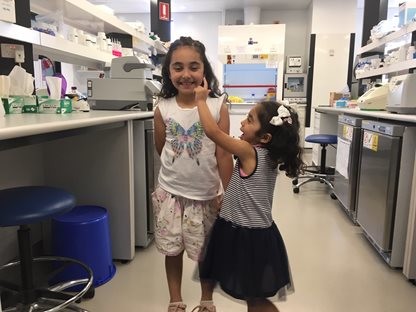LogicBio, CMRI partner to develop next-gen viral vectors

LogicBio, a Boston-based genome editing company, has partnered with Children’s Medical Research Institute (CMRI) to fast-track gene therapy treatments for children with life-threatening genetic liver disease.
The two will jointly develop next-generation synthetic adeno-associated virus (AAV) capsids capable of overcoming many of the current limitations of existing viral vectors. LogicBio will hold exclusive worldwide commercial rights to vectors developed under the new AAV Development Program.
Fred Chereau, CEO of LogicBio, said, “These next-generation vectors will strengthen our platform and expand our pipeline. We also expect them to bolster other important genetic medicine approaches to provide benefits to more patients.”
The new program will be led by Professor Ian Alexander, MBBS, PhD, Head of the Gene Therapy Research Unit at CMRI and Sydney Children’s Hospitals Network (SCHN), and Dr Leszek Lisowski, PhD, MBA, leader of the Translational Vectorology Group at CMRI.
CMRI and its clinical partner, SCHN, have contributed to the clinical translation of cell and gene therapies, including being the first in Australia to treat a genetic disease (SCID-X1) by gene therapy.
Dr Lisowski, a scientific co-founder of LogicBio Therapeutics, is well known for his work in the Stanford University lab of Professor Mark A Kay, MD, PhD, which led to the development of the novel synthetic liver-tropic capsid AAV-LK03. This capsid, which was functionally characterised in a partnership between Stanford and CMRI, together with SCHN, is now being used in the clinic in various gene therapy programs. AAV-LK03 is also being evaluated by LogicBio to deliver corrective transgenes to paediatric patients, using GeneRide, LogicBio’s proprietary genome editing technology.
“We are confident that we can further improve on the performance of current AAV vectors, expanding their utility in a range of tissues, while also improving manufacturability and reducing cost,” said Dr Lisowski.
argenx and Monash University partner against autoimmune diseases
To advance a pioneering molecule for autoimmune diseases, global immunology company argenx has...
Archer completes potassium sensing alpha prototype
Quantum technology company Archer Materials Limited has developed an early Biochip prototype...
Farm animals and aquaculture cryopreservation partnership announced
Vitrafy Life Sciences Limited has announced that it has entered a 12-month exclusive agreement...



